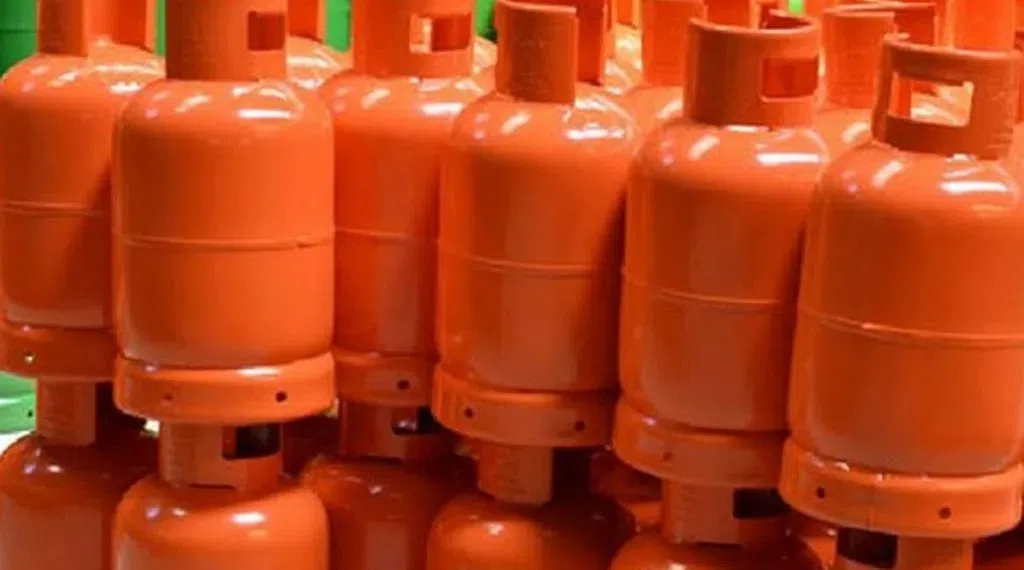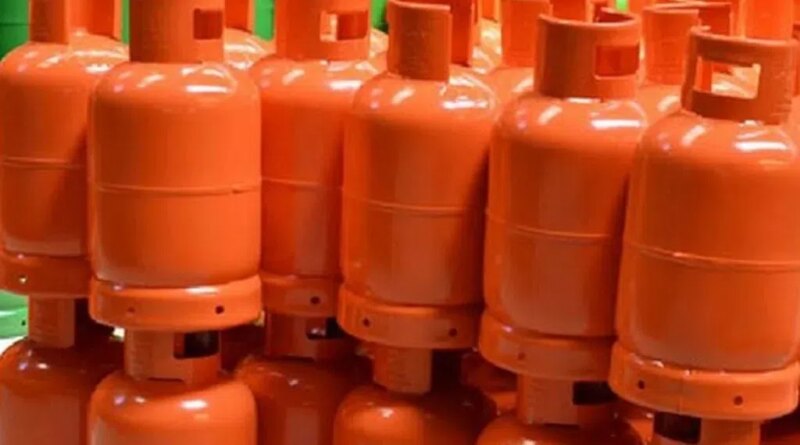
Many people mistakenly believe a gas cylinder can be used indefinitely, but in reality, cylinders do expire. Over time, the steel can weaken, corrode, or suffer damage from pressure, heat, or mishandling, making it unsafe. That’s why Liquefied Petroleum Gas (LPG) cylinders have a recommended lifespan and must undergo periodic safety inspections to ensure they remain fit for use.
Knowing how to check the expiry date of your gas cylinder is crucial for the safety of your home, workplace, and loved ones. You have to regularly inspect your cylinder, and understanding the codes that indicate when it needs to be tested or replaced can help prevent dangerous gas leaks, explosions, and costly accidents.
ALSO READ: 5 reasons cooking gas is scarce and expensive in Nigeria right now
How to Check a Gas Cylinder’s Expiry Date
Most cylinders are stamped with a code indicating when they are due for testing or replacement. Here’s how to read it:
-
Look for the code: Check the metal strips, collars, or neck of the cylinder. Codes often appear as A-23, B-24, or sometimes just a number like “27”.
-
Decode the letter: It represents the quarter of the year for testing:
-
A = January–March
-
B = April–June
-
C = July–September
-
D = October–December
-
-
Decode the number: Two digits indicate the year.
-
Example: B-23 means the cylinder is due for testing in the second quarter (April–June) of 2023.
-
-
If only a number is visible, it usually refers to the year. Confirm with your supplier or testing center.
-
If there’s no marking at all, take the cylinder to an authorized dealer or testing center to verify safety.
Why Gas Cylinders Expire
Cylinders expire for safety and structural reasons:
-
Steel integrity: Over time, the cylinder may weaken or corrode.
-
Lifespan: Most cylinders are designed to last 10–15 years, even if the gas inside is unused.
RELATED: Is your gas cooker flame green? It could be a warning sign
What Happens If You Keep Using an Expired Cylinder?
Using an expired gas cylinder can be extremely dangerous. Over time, the steel weakens and can corrode or develop cracks, increasing the risk of gas leaks. A leaking cylinder in a confined space can easily lead to a fire or explosion, putting lives and property at serious risk. Some of the potential consequences include:
-
Sudden gas leaks: Weak or corroded cylinders can release gas unexpectedly.
-
Explosions: A spark or flame near a leaking cylinder can trigger catastrophic accidents.
-
Damage to appliances: Leaking gas can harm stoves, regulators, and other connected equipment.
-
Legal liability: Using expired cylinders may violate safety regulations, which can have legal implications, especially in commercial settings.
For these reasons, it’s critical to replace or test cylinders once they reach their expiry date. Never assume that just because the gas is still inside, the cylinder is safe to use.
YOU MIGHT LIKE: As Gas prices soar, here are 5 cheaper cooking alternatives for Nigerians
Other Causes of Gas Cylinder Explosions
Gas cylinder explosion can also occur when the fire triangle—fuel, oxygen, and ignition—comes together. Common triggers include:
-
Faulty connections or worn parts are causing leaks.
-
Excessive heat exposure (near stoves, ovens, or direct sunlight).
-
Dropping or mishandling cylinders, damaging valves, or safety seals.
-
Tampering with valve caps or safety seals.
Safety Measures to Prevent Gas Cylinder Accidents
Follow these precautions to minimize risks:
-
Store cylinders upright in a cool, ventilated area, away from sunlight and heat.
-
Check for leaks regularly using a soap-and-water solution.
-
Use quality regulators and hoses, replacing them as recommended.
-
Buy gas cylinders from authorized dealers only.
-
If you suspect a leak, turn off the cylinder valve, ventilate the area, evacuate, and avoid sparks, flames, or electrical switches.
-
Always turn off the cylinder valve when not in use, even for short periods.
-
Avoid open flames or electrical appliances near the cylinder when changing connections or checking for leaks.
RECOMMENDED: Can Your Phone Cause a Gas Explosion in the Kitchen? Here’s the Truth
FAQs
Q1: How long does my gas cylinder last?
Gas cylinders typically last 10–15 years.
Q2: What if I can’t find the expiry marking?
Take the cylinder to a trusted gas supplier or authorized testing center for verification.
Q3: Can old cylinders still be used?
Yes, if they pass safety tests and are properly maintained.
Q4: What does a code like B24 mean?
B = April–June (second quarter), 24 = year 2024.
RECENT: Rema’s Biography: Music, Net Worth, Scandals & How Much He Charges








